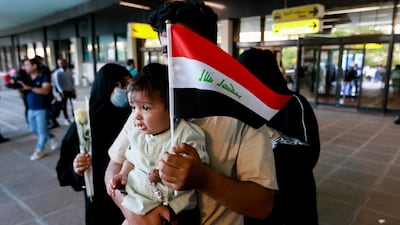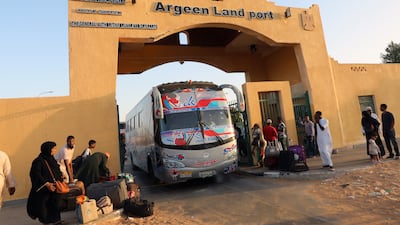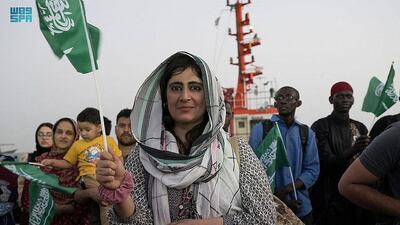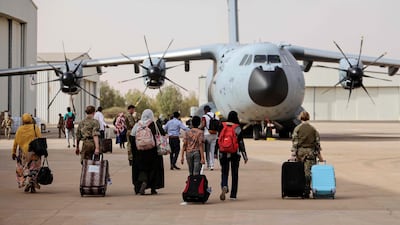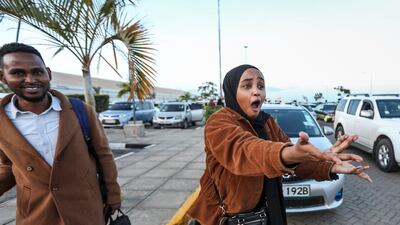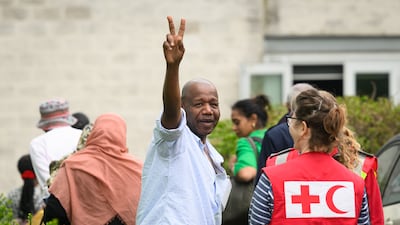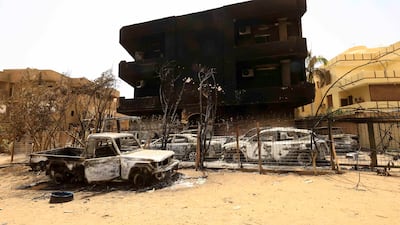Cases of severe disease, including meningitis, among children have risen by at least threefold in Khartoum as rotting bodies in the war-torn streets of Sudan create the perfect environment for infection to spread, a doctor at one of the few remaining paediatric hospitals in the capital has told The National.
“Rotting corpses and widespread looting that has left behind food waste … have caused an environmental hazard on Sudan's streets,” said Mohammad Fath Abdulrahman, general manager of Al Nada Hospital in Omdurman.
Since the war between the paramilitary Rapid Support Forces and the army broke out on April 15, more than 700 civilians have been killed and countless others wounded.
Exact numbers are difficult to obtain, as security concerns prevent doctors from visiting certain areas to carry out assessments.
“The mortality rates amongst children at our hospital stands at 5 per cent – which is high – but it's due to the severity of cases and shortage of necessary equipment,” Dr Abdulrahman said.
“We are receiving children with meningitis who are in a very critical state because they arrived at the very last possible minute.”
Meningitis is an inflammation in the brain and spinal cord caused by a bacterial or viral infection.
Since the war began, videos of uniformed men lying dead in residential areas have been circulating on social media. People have also described seeing bodies wrapped in blankets, waiting to be collected.
Residents, doctors, UN officials and humanitarian workers say that homes, hospitals and aid have also been looted.
The presence of human remains and rotting food following looting in marketplaces “have led to a severe lack of hygiene in the streets”, Dr Abdulrahman said.
“This has helped create the spike in meningitis cases we've been seeing.”
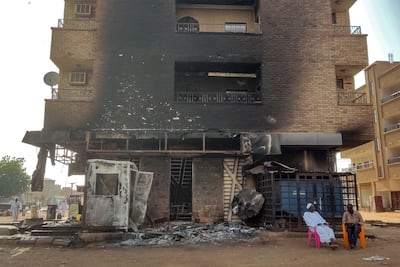
The war has also resulted in banks being robbed or closed down, leaving people with no access to funds.
“People are having to sell their possessions just to eat. So money is a concern when it comes to getting treatment,” Dr Abdulrahman said.
'Healthcare collapse'
At least 80 per cent of hospitals in conflict areas in and around Khartoum are out of service, the latest figures from Sudan's Doctors' Association show.
In addition, Khartoum is the country's healthcare centre, so the impact of fighting there has had major repercussions nationwide.
“Work in elective surgeries has mostly stopped. Now, hospitals are mainly dealing with emergency cases like war trauma patients and others who need dialysis and chemotherapy, for example,” Dr Faisal Nugud, director of the Sudanese American Physicians Association's regional office in Madani, told The National.
“Khartoum was also the main supplier of medicines and medical care. Consumables are depleting, including dialysis solutions, chemotherapy needs and surgical tools like gauze and gloves.”
Doctors and healthcare workers have been appealing for assistance.
“The humanitarian situation is dire,” Dr Nugud said.
Although the warring sides have agreed to a ceasefire on several occasions, fighting is still continuing.
“I expect a major collapse in the healthcare system” if the situation continues, Dr Nugud said.
Dr Abdulrahman, who has chosen to stay in Omdurman despite the chaos and violence to help those most in need, agreed.
“We are operating at a loss right now. But we have to remain open,” he said.

